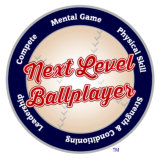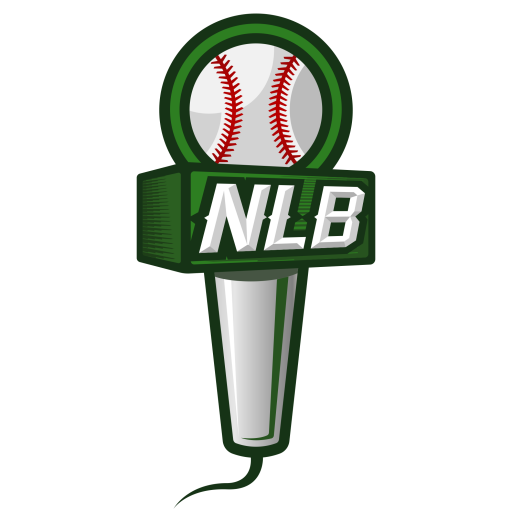
Over the past year I’ve become friends with Sam LeBeau. I randomly met him at the national high school coaches convention and have continued to keep in touch with him ever since. Sam works with high school and college baseball coaches around the country through his company, Dominican Baseball Camp. Dominican Baseball Camp takes individual high school players or teams to the Dominican Republic to train with and play against the local talent (more details about the trips can be found at the end of this article).
Sam lived in the Dominican Republic right out of college and has taken countless trips back over the years with Dominican Baseball Camp. He has great relationships with many Major League Baseball academies in the Dominican and knows firsthand the baseball culture. I recently asked Sam if he would write an article for Next Level Ballplayer to illustrate some of the Dominican differences that ballplayers in the US can learn from. Many thanks to Sam for this insightful look inside Dominican baseball.
Enter Sam LeBeau:
Did you ever wonder why there are so many Latin players in Major League Baseball? The majority of these players come from a small island nation in the Caribbean called the Dominican Republic.
The Dominican Republic is a Spanish speaking nation of 10 million citizens that shares the island of Hispaniola with Haiti. Baseball has been played there since the early 1900’s when the sugar cane plantation workers started baseball leagues. In 2010, there were 139 Dominicans in Major League Baseball compared to 982 Americans. The United States has a population of 300 million. So, while the American population is 30 times that of the Dominican, there are only 7 times as many major leaguers from the United States. This means that, on a per capita basis, a Dominican is 4.3 times as likely as an American to make it to the majors. 8 of the last 18 MVP’s in MLB were either born or spent part of their childhood in the Dominican Republic.
These are astonishing statistics that show that, while baseball is America’s pastime, Dominicans have statistically been more successful at producing top level players in recent years. It appears that the percentage of Dominicans in the majors will only increase in the years to come
Why is this? What can we learn from them?
There are some fundamental differences in the way the game is approached in the Dominican Republic. Some of these include Cultural differences and differences in: playing environment; player physique, player attitude and coaching philosophy.
Playing Environment
Baseball is a national passion in the Dominican. The best athletes are playing baseball and are playing year-round. Athletes who may wind up as a running back or a wide receiver or a point guard here in the states are playing baseball in the Dominican. Players have fewer distractions from other sports and also fewer distractions in general. They don’t spend as much time in school and don’t have many of the things that Americans have to keep them busy: cars, spending money, TV, cell phones, internet…etc. In short baseball is THE activity for many of these kids and they practice and play all day.
Physical Physique
The average Dominican player of 15 or 16 years of age tends to be in better physical condition that his American counterpart. This is due to an intense training program as well as a generally more physical lifestyle. Players arrive at the beach early in the morning for a rigorous sprint workout in the sand. They do a ton of long toss and take countless ground balls. “…their arms are, for the most part, stronger and looser than their American counterparts. I mention this because I believe it is because they throw so much.” – Keith Madison, former U. of Kentucky Head Coach
Player Attitude
One of the most noticeable things about the Dominican players is their attitude toward the game. They approach both practices and games with a true passion. “It is so important to talk about the passion for the game that players have. The way that the fields are packed from dawn to dusk with one game/practice after the next is surely a testament to this. Perhaps it can’t be completely understood unless you see it.” – Eddie Smith; Assistant Coach; University of Virginia Baseball
Some other words to describe their approach to the game include: toughness, courageous, aggressive, focused, humble and enthusiastic.
Dominican players tend not to over-over analyze. They play loose and have fun with the game. “Dominican players do not suffer from “paralysis by analysis“; they do not become so caught up in how to do something that it interferes with them actually doing it; they do not have ‘cookie cutter’ players” – Jeff Diskin; Head Baseball Coach and Athletic Director; Pembroke Hill School; Kansas City, MO
Coaching Philosophy
Their coaches put less emphasis on mechanics and more emphasis on developing athleticism. They have their players devote their time and effort into working hard to improve arm strengths, foot speed and agility and don’t waste time trying to master “the latest technique” in hitting/fielding/throwing. “The Dominican’s don’t have the mechanics we do, but they are ‘looser’ and play with more freedom. They are not, for the most part, ‘over coached.'” -Keith Madison, former U. of Kentucky Head Coach
While there are some things that the Dominicans do better and some things the Americans players are better at, there is no doubt that any American player would be well served to experience baseball in the Dominican Republic and absorb some of the Dominican approach to the game. Two of the most successful baseball players in recent history, Alex Rodriguez and Albert Pujols had the unique experience of spending part of their youth in the United States and part in the Dominican Republic-getting the best of both worlds.
Opportunities for US High School Ballplayers to Experience Dominican Baseball
There are opportunities available for American players to travel to the Dominican Republic. American players who have travelled to the Dominican have learned from the Dominicans passion and hard work. Here are some quotes from several high school players who travelled to the Dominican in 2010:
- “Through their passion I learned what it truly meant to work hard for a goal, the necessary work ethic required to succeed.” – Mitchell Barnes-Wallace; Pitcher, San Diego, CA
- “The one thing I came away with more than any other was how they focused on their conditioning the most. Understanding this and their reasoning behind it has affected my plans for my future training.” – Colin Karafa; Catcher, Leesburg, VA
- “The best part of the trip was meeting the Dominican players. They have great passion for the game. They work extremely hard and always give it their all.” – Alvin Franklin; Outfield; Jackson, MS
- “I learned how hard the Dominican kids work at baseball and how hard I need to work.” – Colin Pfafman; Outfield; Auburn, Indiana
Dominican Baseball Camp takes high school and college baseball players on week-long trips that immerse the player in baseball. Dominican Baseball Camp takes entire teams down for baseball tours and also has summer trips for high school kids that individual players can sign up for. These summer camps are led by Division I college coaches who are assisted by a team of Dominican coaches. Coaches for 2011 include Michigan State head coach, Jake Boss Jr. and Indiana University head coach, Tracy Smith.
“I have been around baseball all my life as a amateur player, professional player, and as a coach. I can say without a doubt Dominican Baseball Camp is one of the best baseball experiences in my life, it not the best!” says Tracy Smith.
Any player interested in travelling to the Dominican Republic should check the website http://www.dominicanbaseballcamp.com. There are no more slots available for summer 2011 trips, but there are spots available for the upcoming winter trip December 27- January 2 with University of Virginia’s assistant coach, Eddie Smith.
“For a player looking to experience the Dominican and take their game to the next level, there is not a better experience!” – Eddie Smith; Assistant Baseball Coach, University of Virginia





